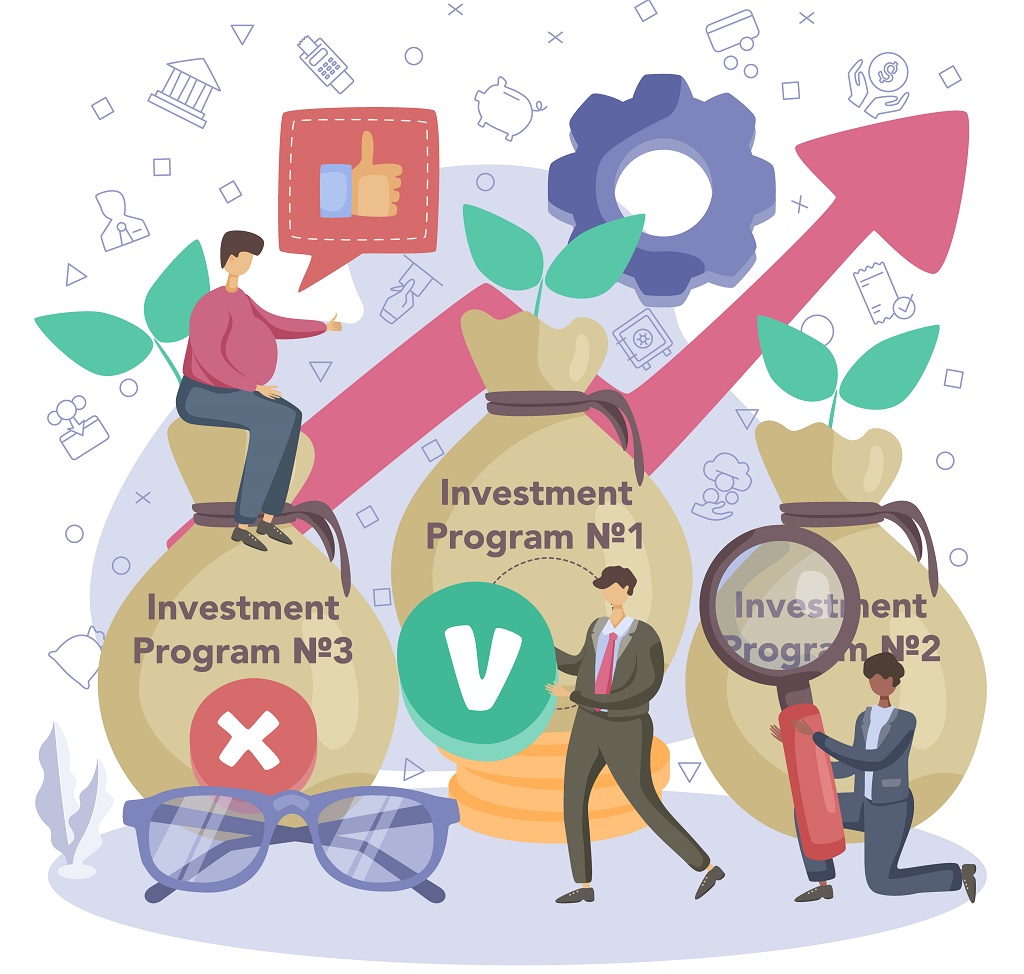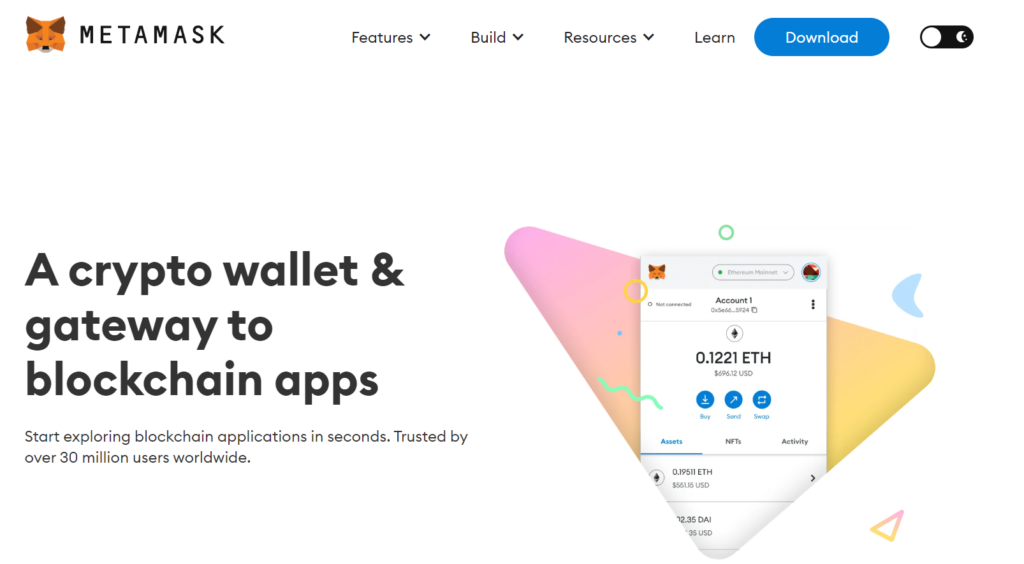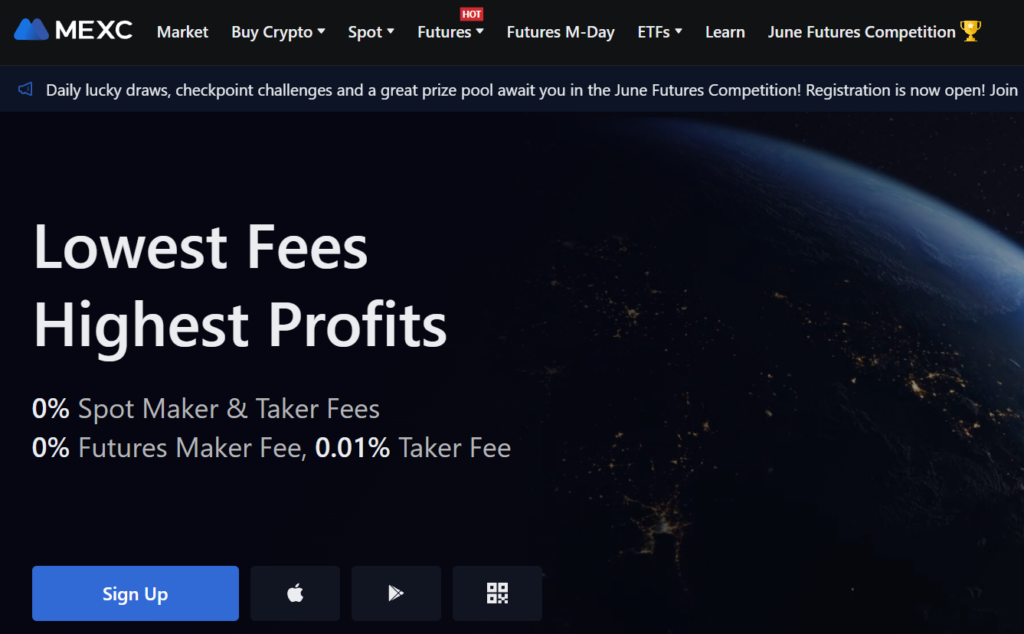Blockchain technology is revolutionizing the world, and investing in it has become a hot topic. This article will guide you on how to invest in blockchain, highlighting its importance and potential for high returns.
Table of Contents
Understanding Blockchain
The Significance of Blockchain in Different Industries
Blockchain, a decentralized and transparent ledger system, is transforming industries from finance to healthcare. It’s the backbone of cryptocurrencies and is being adopted for its security and efficiency.
The Role of Blockchain in Cryptocurrency
Blockchain is the engine that powers cryptocurrencies. It ensures secure and anonymous transactions, making it a game-changer in the financial world.
Why Invest in Blockchain?

Investing in blockchain technology has become increasingly popular due to its transformative potential and the high returns it can potentially offer. Here are some reasons why you might consider investing in blockchain:
The Growth and Potential of Blockchain Technology
Blockchain technology is still in its early stages, but it’s growing rapidly. According to a report by Markets and Markets, the global blockchain market size is expected to expand from $3.0 billion in 2020 to $39.7 billion by 2025, at an impressive Compound Annual Growth Rate (CAGR) of 67.3% during 2020–2025. This growth is driven by the need for simplified business processes, transparency, immutability, and reduced operational costs.
Blockchain’s potential extends beyond cryptocurrencies. It’s being used in various industries, including finance, healthcare, supply chain, and real estate, to improve efficiency, security, and transparency. This wide applicability and potential for disruption make blockchain a promising area for investment.
Case Studies of Successful Blockchain Investments
There are numerous examples of successful blockchain investments. Early investors in Bitcoin, the first and most well-known application of blockchain, saw their investments grow exponentially. For instance, if you had invested $1,000 in Bitcoin in 2010, it would be worth millions today.
But it’s not just cryptocurrencies that offer potential. Investors in blockchain startups have also seen high returns. For example, those who invested in Ethereum during its Initial Coin Offering (ICO) in 2014 have seen a return of over 200,000%.
The Risks and Rewards of Investing in Blockchain
Investing in blockchain can be highly rewarding, but it’s not without risks. The market is highly volatile, and prices can fluctuate widely in short periods. Additionally, the technology is still relatively new and evolving, and there are regulatory uncertainties.
However, the potential rewards can be substantial. Blockchain investments have the potential for high returns, as seen in the examples above. Moreover, investing in blockchain allows you to be part of a technology that could reshape the world.
Types of Blockchain Investments

Investing in blockchain doesn’t just mean buying cryptocurrencies. There are several ways to invest in this innovative technology, each with its own risk and reward profile. Here are some of the main types of blockchain investments:
Investing in Cryptocurrencies
Cryptocurrencies are the most direct way to invest in blockchain technology. Bitcoin, the first cryptocurrency, is the most well-known, but there are thousands of others, including Ethereum, Ripple, and Litecoin. These digital currencies use blockchain technology to secure transactions and control the creation of new units.
Investing in cryptocurrencies involves buying the digital coins or tokens on a cryptocurrency exchange and then holding them in a digital wallet. The value of these coins or tokens can fluctuate widely, so this type of investment can be risky. However, the potential for high returns is also significant.
Blockchain Stocks and ETFs
Investing in blockchain technology can also be achieved indirectly through the stock market. Many companies are incorporating blockchain technology into their operations or are developing blockchain solutions. This includes tech giants like IBM, which is heavily invested in blockchain research and development, and financial institutions like Visa, which is using blockchain for certain types of transactions.
In addition to individual stocks, there are also several Exchange Traded Funds (ETFs) that focus on blockchain technology. These funds invest in a diversified portfolio of blockchain-related stocks, providing investors with broad exposure to the sector without the need to pick individual stocks.
Bitcoin ETFs
A notable development in the investment landscape is the emergence of Bitcoin ETFs. A Bitcoin ETF, or Exchange Traded Fund, is a type of investment fund and exchange-traded product that tracks the price of Bitcoin. These ETFs are traded on traditional market exchanges, meaning that investors can buy and sell shares in a Bitcoin ETF on the stock market.
Bitcoin ETFs provide a way for investors to gain exposure to Bitcoin without having to buy, store, and secure the cryptocurrency themselves. This makes Bitcoin ETFs a potentially attractive option for investors who believe in the long-term value of Bitcoin but prefer to avoid the complexities and risks of direct Bitcoin ownership.
Blockchain Startups and ICOs
Investing in blockchain startups or Initial Coin Offerings (ICOs) is another option. Startups often raise funds by issuing their own digital tokens in an ICO. These tokens can sometimes be used to access services provided by the startup, or they may represent a stake in the company.
Investing in ICOs can be risky, as many startups fail, and there have been cases of fraud. However, successful ICOs can also provide high returns. As with any investment, it’s important to do thorough research before investing in an ICO.
Blockchain Funds
Finally, there are also funds that specialize in blockchain investments. These funds may invest in a mix of cryptocurrencies, blockchain stocks, and other blockchain-related assets. Investing in a blockchain fund can provide diversification and professional management, but it’s important to understand the fees involved and the fund’s investment strategy.
In conclusion, there are several ways to invest in blockchain, from buying cryptocurrencies to investing in blockchain stocks, ICOs, or funds. Each type of investment has its own risks and rewards, and it’s important to choose the one that fits your investment goals and risk tolerance.
How to Choose the Right Blockchain Investment

Choosing the right blockchain investment can be a complex process due to the variety of options available and the volatile nature of the market. Here are some key considerations to help guide your decision-making process:
Factors to Consider When Choosing a Blockchain Investment
- Understanding the Technology: Before investing in any blockchain project, it’s crucial to understand the underlying technology. What problem does it solve? How does it improve upon existing systems or processes? A strong understanding of the technology can help you assess the project’s potential for success.
- The Team Behind the Project: The team’s experience and track record can significantly impact a project’s success. Look for a team with a proven track record in blockchain and related fields.
- Market Demand: For a blockchain project to be successful, there needs to be a demand for its services. Research the market size and potential growth.
- Competitive Landscape: Consider the competition. Does the project offer a unique solution or competitive advantage?
- Risk Tolerance: Blockchain investments can be volatile and risky. Assess your risk tolerance and invest accordingly.
The Importance of Doing Your Own Research
DYOR is crucial when choosing a blockchain investment. This includes researching the project, the team, the market, and the competition. It’s also important to stay updated on news and developments in the blockchain and cryptocurrency space, as these can significantly impact your investments.
Evaluating the Potential Return on Investment
Consider the potential return on investment (ROI). While blockchain investments can offer high returns, they also come with significant risks. Look at the project’s growth potential and compare it with the associated risks to assess whether the potential ROI is worth it.
As you see, choosing the right blockchain investment involves careful research and consideration. It’s important to understand the technology, assess the team and market demand, consider the competition, evaluate your risk tolerance, and estimate the potential ROI. By taking these steps, you can make informed decisions and choose the blockchain investments that best fit your investment goals and risk tolerance.
Step-by-Step Guide to Investing in Blockchain

Investing in blockchain can seem daunting, especially for beginners. However, by following a step-by-step guide, the process can become more manageable. Here’s a simple guide to help you start your journey in blockchain investing:
Setting Up a Digital Wallet

Before you can buy cryptocurrencies or other blockchain assets, you’ll need a digital wallet. This is a virtual wallet where you’ll store your digital assets. There are various types of wallets available, including online wallets, mobile wallets, desktop wallets, and hardware wallets. Each type has its own advantages and disadvantages in terms of security and convenience, so choose one that best fits your needs.
| Digital Wallet | Key Features | Link |
|---|---|---|
| Trezor Model T | High security, supports 14 cryptocurrencies, open-source software | Trezor Model T |
| Ledger Nano X | Secure cold storage, connects via Bluetooth or USB, supports over 5,500 cryptocurrencies | Ledger Nano X |
| Electrum | Customizable transaction fees, high security, only works for Bitcoin | Electrum |
| Exodus | Built-in exchange, good for beginners, supports cold storage | Exodus |
| MetaMask | A crypto wallet & gateway to blockchain apps, supports token exchange | MetaMask |
| Trust Wallet | Supports a wide range of tokens, built-in exchange, secure and private | Trust Wallet |
| Coinbase Wallet | Supports a wide range of tokens, secure and private, integrates with Coinbase | Coinbase Wallet |
| Tangem Wallet | Card-shaped self-custodial cold wallet, supports 6000+ coins and tokens | Tangem Wallet |
Choosing a Cryptocurrency Exchange

Once you have a digital wallet, the next step is to choose a cryptocurrency exchange. This is a platform where you can buy, sell, and trade cryptocurrencies. There are many exchanges available, each with its own features, fees, and supported cryptocurrencies. Some popular exchanges include Mexc, Binance, and Gate.io. When choosing an exchange, consider factors like security, user-friendliness, fees, and the cryptocurrencies it supports.
Buying and Selling Blockchain Assets
After setting up your wallet and choosing an exchange, you’re ready to start buying blockchain assets. The process will vary depending on the exchange, but generally, you’ll need to deposit funds into your exchange account, then use those funds to buy the cryptocurrency or other blockchain assets of your choice.
Selling your blockchain assets involves a similar process. You’ll need to transfer the assets from your wallet to the exchange, then sell them for your preferred currency.
Diversifying Your Blockchain Investments
Just like with any other type of investment, it’s important to diversify your blockchain investments. This means investing in a variety of blockchain assets, not just one. Diversification can help reduce risk by ensuring that your investments are not all tied to the performance of a single asset.
Future of Blockchain Investments
The future of blockchain investments is promising, with many experts predicting continued growth and innovation in the sector. Here are some key trends and potential opportunities to watch for:
Predicted Trends in Blockchain Technology and Investments
- Increased Adoption Across Industries: Blockchain technology is expected to see increased adoption across various industries, from finance and healthcare to supply chain management and real estate. This widespread adoption could drive demand for blockchain solutions and create investment opportunities.
- Regulatory Developments: As blockchain technology becomes more mainstream, regulatory frameworks are likely to evolve. These changes could impact the value of certain blockchain investments and create new opportunities.
- Technological Advancements: Technological advancements in blockchain, such as the development of more scalable and efficient networks, could drive growth in the sector and create new investment opportunities.
Potential Challenges and How to Navigate Them
While the future of blockchain investments is promising, it’s not without potential challenges. These could include regulatory uncertainties, market volatility, and technological hurdles. Staying informed about developments in the blockchain space and adjusting your investment strategy accordingly can help you navigate these challenges.
Opportunities for Future Growth
As blockchain technology continues to evolve, new opportunities for investment are likely to emerge. These could include investing in new blockchain startups, cryptocurrencies, or other blockchain-based solutions. Additionally, as blockchain becomes more integrated into mainstream industries, there could be opportunities to invest in traditional companies that are leveraging blockchain technology.
Conclusion
Investing in blockchain technology presents a unique opportunity to participate in a transformative technological shift. From cryptocurrencies to blockchain startups, ETFs, and more, the variety of investment options allows individuals to find opportunities that align with their financial goals and risk tolerance.
Understanding blockchain technology, its applications, and its potential impact on various industries is the first step in making informed investment decisions. It’s also crucial to understand the different types of blockchain investments available, from direct investments like buying cryptocurrencies to indirect investments like buying stocks in blockchain-related companies or ETFs.
Choosing the right blockchain investment involves careful consideration of several factors, including the technology behind the project, the team, market demand, competitive landscape, and your own risk tolerance. It’s also important to diversify your investments to mitigate risk.
The future of blockchain investments looks promising, with increased adoption across industries, regulatory developments, and technological advancements all pointing towards continued growth and innovation in the sector. However, potential challenges such as regulatory uncertainties and market volatility underline the importance of staying informed and being prepared to adjust your investment strategy as needed.
In conclusion, investing in blockchain can be a rewarding venture if done right. By understanding the technology, choosing the right investments, and managing your portfolio effectively, you can potentially reap significant benefits. Remember, the key to successful investing is knowledge, patience, and strategic planning. Always do your own research and consider seeking advice from a financial advisor before making investment decisions.
FAQs
Why should I invest in blockchain?
Investing in blockchain can offer high potential returns due to the technology’s growth and disruptive potential.
Can I invest in blockchain?
Yes, you can invest in blockchain in several ways. This includes buying cryptocurrencies, investing in blockchain stocks or ETFs, participating in Initial Coin Offerings (ICOs) for blockchain startups, or investing in a blockchain fund. Each type of investment has its own risks and rewards, so it’s important to choose the one that fits your investment goals and risk tolerance.
Is blockchain a good investment?
Blockchain can be a good investment, given its transformative potential and the growth of the sector. However, like any investment, it comes with risks. The value of blockchain investments can be volatile, and there are regulatory uncertainties. Therefore, it’s important to do thorough research and consider your own risk tolerance before investing.
What is blockchain stock?
Blockchain stock refers to shares in companies that are either developing or using blockchain technology in their operations. These companies can range from tech giants like IBM to smaller startups focused solely on blockchain solutions.
How to invest in blockchain stocks?
Investing in blockchain stocks is similar to investing in any other type of stock. You’ll need to open a brokerage account, research potential investments, and then buy shares through your broker. It’s important to do thorough research and consider the company’s financial health, the potential of its blockchain technology, and the overall market conditions.
How to invest in blockchain ETF?
Investing in a blockchain ETF (Exchange-Traded Fund) is a relatively straightforward process, similar to investing in any other ETF. Here are the steps you would typically follow:
Open a Brokerage Account: If you don’t already have one, you’ll need to open a brokerage account. There are many online brokers to choose from, each with its own fee structures and features. Some popular online brokers include E*TRADE, TD Ameritrade, and Fidelity.
Research Blockchain ETFs: Not all blockchain ETFs are the same. They can vary based on the specific companies they invest in, their management fees, and their overall investment strategy. Some well-known blockchain ETFs include Amplify Transformational Data Sharing ETF (BLOK) and Reality Shares Nasdaq NexGen Economy ETF (BLCN). Do your research to find an ETF that aligns with your investment goals.
Buy the ETF: Once you’ve chosen a blockchain ETF, you can buy it through your brokerage account. You’ll need to enter the ticker symbol of the ETF, decide how many shares you want to buy, and then place your order.
Monitor Your Investment: After you’ve purchased the ETF, it’s important to monitor your investment. Keep an eye on performance, stay informed about developments in the blockchain sector, and adjust your investment strategy as needed.


